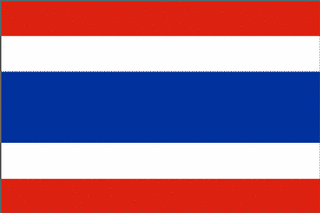For several years the position of Polish exporters on the markets of the former Commonwealth of Independent States has been clearly weakening
Published:
5 May 2003 y., Monday
In order to spur on trade, presentations of Polish exporters are gaining popularity. One such presentation is the Polish National Exhibition in St. Petersburg.
Geographic proximity, relatively small competition from local manufacturers who are not capable of satisfying the growing demand for modern products and, contrary to common belief, the increasingly wealthy and demanding customer, are the advantages of the "eastern market." Why then does trade with the countries of the Commonwealth of Independent States (CIS) constitute as little as 7.1 percent of the global value of Polish export?
The position of Polish companies is weakened by competition from the Western businesses that are perfectly aware of the perspectives which an active and strategically planned entry into Eastern markets can accomplish. Entrepreneurs from Germany, France and the United States, supported by the appropriate funds, first promote and then successfully sell their products in Russia and Ukraine or make direct investments there.
The decrease in the amount of Polish agriculture and food products exported to Eastern markets has stemmed from the fact that big international concerns such as Nestlé, Danone or Unilever directly entered this strategic area. However, the issue of Western competition is only a part of the answer to this question and the possibility of development for Polish exporters on the markets in the former Soviet Union.
One of the most serious difficulties Polish companies encounter is a considerable risk connected with signing commercial contacts with partners from the East who frequently appear to be insolvent and do not honor their contracts. According to Robert Stawski from the Promotion Chamber of the Polish Chamber of Commerce, businesspeople from Russia frequently do not understand the term "advance payment" and sometimes want to pay for the products only after they sell them. For obvious reasons, these terms are hard to accept for Polish manufacturers, which are mostly small and medium-sized companies. The state does not guarantee any protection for companies against situations in which partners from Russia, Belarus or Ukraine do not fulfill the terms of a commercial contract.
Šaltinis:
warsawvoice.pl
Copying, publishing, announcing any information from the News.lt portal without written permission of News.lt editorial office is prohibited.
The most popular articles
 In January 2009, the EBRD commissioned two Italian consultants to study Turkey's sustainable energy market in preparation for future investments.
more »
In January 2009, the EBRD commissioned two Italian consultants to study Turkey's sustainable energy market in preparation for future investments.
more »
 Next week a delegation of more than 50 Chinese businessmen, accompanying the Chinese Vice-Premier Hui Liangyu, are arriving to Lithuania.
more »
Next week a delegation of more than 50 Chinese businessmen, accompanying the Chinese Vice-Premier Hui Liangyu, are arriving to Lithuania.
more »
 The German developer “ECE” together with Lithuanian partners opened a new shopping and entertainment centre Ozas Gallery in Vilnius.
more »
The German developer “ECE” together with Lithuanian partners opened a new shopping and entertainment centre Ozas Gallery in Vilnius.
more »
 As it embarked on an ambitious stimulus spending, Thailand turned to the World Bank for advice on how to fast track the spending coupled with proper management controls to keep programs on the rails.
more »
As it embarked on an ambitious stimulus spending, Thailand turned to the World Bank for advice on how to fast track the spending coupled with proper management controls to keep programs on the rails.
more »
 Peter Reiniger Business Group Director for Central Europe and the Western Balkans from the European Bank for Reconstruction and Development visited Latvia to sign subordinated loan agreement with Parex banka.
more »
Peter Reiniger Business Group Director for Central Europe and the Western Balkans from the European Bank for Reconstruction and Development visited Latvia to sign subordinated loan agreement with Parex banka.
more »
 On Monday AB DnB NORD Bankas started placement of a 13-month fixed-rate Lithuanian government bonds. It is the first time when Lithuanian sovereign USD denominated securities will be available on Lithuania’s retail market.
more »
On Monday AB DnB NORD Bankas started placement of a 13-month fixed-rate Lithuanian government bonds. It is the first time when Lithuanian sovereign USD denominated securities will be available on Lithuania’s retail market.
more »
 The Swedish business daily Dagens Industry published an interview with Andrius Kubilius, the Prime Minister of Lithuania, to Bloomberg News.
more »
The Swedish business daily Dagens Industry published an interview with Andrius Kubilius, the Prime Minister of Lithuania, to Bloomberg News.
more »
 The economic crisis still has a firm grip on large parts of the world. But Sweden’s Minister for Trade Ewa Björling can see bright spots.
more »
The economic crisis still has a firm grip on large parts of the world. But Sweden’s Minister for Trade Ewa Björling can see bright spots.
more »
 The European Bank for Reconstruction and Development and KfW Entwicklungsbank (The German development bank) are providing a financing programme worth up to €28.9 million to MegaBank - one of the strongest regional banks in the eastern Ukraine.
more »
The European Bank for Reconstruction and Development and KfW Entwicklungsbank (The German development bank) are providing a financing programme worth up to €28.9 million to MegaBank - one of the strongest regional banks in the eastern Ukraine.
more »
 A settlement in an international tax dispute that strained U.S. ties with Switzerland.
more »
A settlement in an international tax dispute that strained U.S. ties with Switzerland.
more »